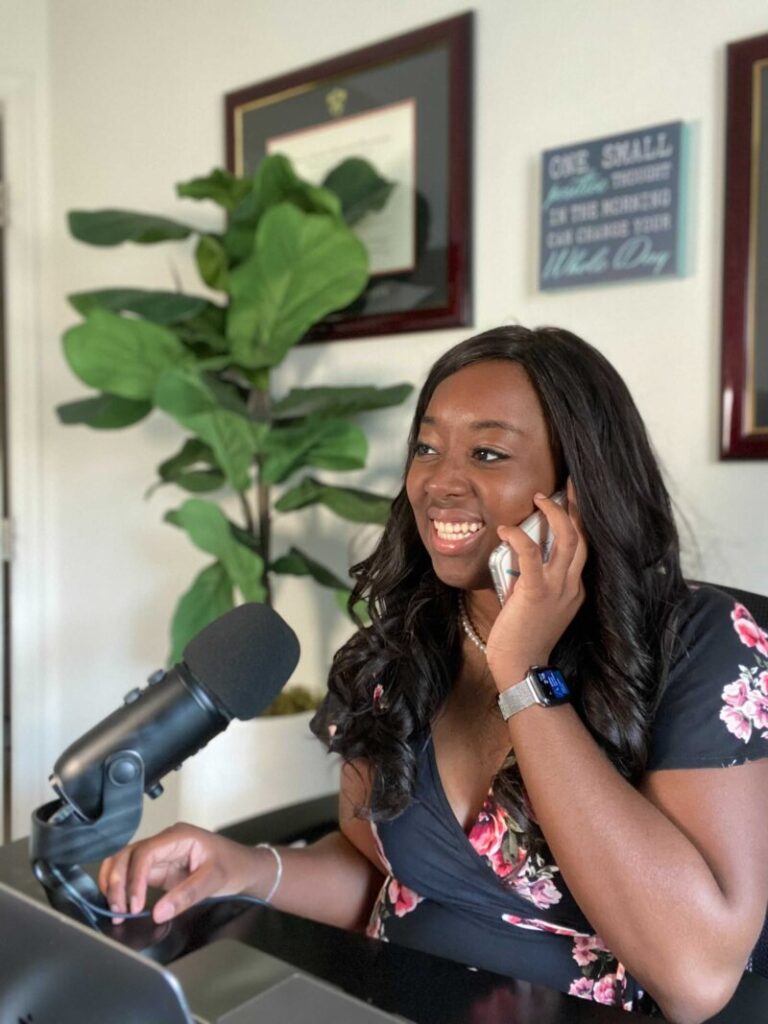Education opens doors, but sometimes we’re too quick to let our education dictate just which doors we are allowed to walk through. My name is Sydney Montgomery, I’m 27 years old, I graduated from Princeton University and Harvard Law School, and I quit practicing law almost two years ago to build a thriving digital educational startup. I chose to walk away from the potential to work at a Big Law firm making $200,000 starting salary so that I could instead dedicate my life to disrupting the status quo in higher education admissions and helping other first-generation minority law school students, like myself, achieve their full potential and impact their communities.
There are a few things I have learned from my journey out of Corporate America (or rather my abject avoidance of it altogether) and into my unexpected career as CEO of a digital educational startup.
- If you have a passion, you need to pursue it, even if it’s not exactly what you went to school for
I’ve learned that we are all our best selves when we operate in our zone of genius. There are many things that we can be good at, a handful of things that we can be even great at. But there are a select few things that really tap into our zone of genius and unlock the creativity that allows us to truly impact society.
I became the first student from my high school to go to Princeton. Both of my parents received their college degrees after joining the Navy, so I relied on help from teachers to navigate the college admissions process. Realizing how many misconceptions and straight-up lies I was told about the process, admissibility, and affordability, I started giving back to my community, my high school, my church, and local dance studios to help other students through the process.
I kept doing this through college, and when Princeton lost its pre-law advisor during my first year of law school, I stepped in to help first-generation and minority students navigate the law school admissions process. I kept consulting throughout law school and launched my business officially in 2018 after I graduated, with no actual plans of pursuing it full-time. Besides, I went to Harvard Law School, my entire church had prayed over me, not practicing law was not really an option.
Still, I couldn’t shake this love for the admissions landscape and I ended up taking a graduate certificate course in Independent Educational Consulting through UC Irvine. As the balancing act between being a first-year associate at a family law firm and trying to balance this, now growing, business continued, I realized that I wasn’t using my education to open doors anymore, but I was letting my education hold me back.
I learned that education gives us options. I have the option to practice law, but I shouldn’t use the fact that I went to Harvard Law School to keep me from what I was clearly called to be doing.
2. Choose happiness (and health)
Character comes from your response to tough situations, setbacks, and obstacles. One of the biggest wake-up calls for me that I needed to make a change and actually pursue what I wanted to do is that my health was literally deteriorating under the stress of being in the wrong job.
I realized I had a choice, I could be in pain and be miserable, or I could be in pain but choose happiness. My health (and faith) helped me make that leap and decide that if I was going to be in pain every day I wanted to wake up and do something that lit a fire inside of me and not live in fear of failing.
Setbacks and tragedies are going to happen but they don’t define you unless you let them. Choose to smile in the face of adversity, choose to give more than you receive, choose to find the bright side, because I’ve learned that positivity is a powerful magnet for prosperity. Good fortune, open doors, and success will find you when you focus on gratitude and opportunities.
3. Define success for yourself
Once I made the leap away from practicing law, I had to quickly decide that I was not going to listen to the naysayers. I learned that only you can define what a successful path is for you. And sometimes it is necessary to allow your path to change from your original plan.
No matter what, there will be people that have expectations about what you should become, and who you should be, and about how high (or low) your aspirations should be. But life is too short to chase the bar that others have set for you.
Because I trusted myself I have been able to grow from a solopreneur to the CEO of a company that just closed its first round of equity financing. We have a team of 9 people, including three full-time employees, and we serve students not just all over the country, but internationally too. Choose the career that makes you happy and aligns with your personal values, dreams, and goals, even if it isn’t the most sensible or prestigious right away and you will find success.
4. Decide that failure is not an option and you won’t fail
That may sound cute, and easier said than done, but when I pivoted to building S. Montgomery Admissions Consulting full-time, I had no savings and no safety net. In fact, I had negative savings; I just had debt. I made the decision to pivot and then the world shut down because of COVID-19 the very next week. I took out a $12,000 personal loan and started drafting a business plan that would allow me to get through the next few months without tanking my credit and admitting defeat.
I had no idea, really, how to build an online business, but I decided that I would learn just about everything I could. By subscribing to helpful email newsletters from companies on productivity and digital marketing like Zapier and Later, I ended up discovering the Think in Color conference hosted by Thinkific. There are actually so many opportunities to learn from successful entrepreneurs in this field, but this conference, aimed specifically at BIPOC women and featuring other millennial women entrepreneurs like myself, seemed tailor-made for me.
That conference was life-changing and not just because of the information presented, but because it reinforced the notion for me that there were plenty of resources to help me not fail. I joined a community of Black Christian women business owners hosted by Candace Junee, I enrolled in video content creation workshops and ultimately started getting coached by XayLi Barclay. I joined the 5-week accelerator program offered after the conference by Thinkific and built my first online course, a hybrid live and asynchronous group boot camp that became one of the most innovative ways of walking people through the law school admissions process on the market. From the time that I found Think in Color in July to the end of 2020, I ended up grossing $102,000 in the business and significantly increasing my platform and credibility in the admissions consulting community.
5. Give yourself daily affirmations because it’s hard in the beginning
When I first pivoted, I started writing on sticky notes. You can do it. Your dream is attainable. You will not fail. You will not starve. I literally put these next to my bed and on my bathroom mirror. It sounds corny, but I needed to see it. And even after the startup became successful, I kept them there as a reminder of a time that I didn’t think that I could but then I did.
6. Don’t hide any part of yourself. You are what makes your company unique and successful.
Your authentic self is what is going to drive your business forward. If you try to hide behind a corporate veil you will become nameless and forgettable in a culture that cares increasingly about the people running the company and their values almost more than the company itself.
For me, I knew deeply that I couldn’t get where I was without God, but I also thought that you needed to have this wall up between your business and your professional life. I decided one day that I would go on my Instagram and pray over students in the height of the election season because stress levels were at an all-time high. I ended up launching the podcast Mindful Prayers for Students. I started having students seek me out to pray over them and their LSAT exams or the application essays. I created a Facebook group and started praying at the end of my live streams. Of course, not all of my students are Christian, we serve students of all faith and students with no subscribed faith culture, but the more I leaned into my faith, the more my business grew. What people appreciate the most is my authenticity.
So, no, I don’t practice law anymore. It’s not because the law isn’t for me or it wasn’t what I thought it would be, or I couldn’t hack it as an attorney or any of those things. It’s because sometimes when you feel a magnetic pull to really be in your purpose, you have to listen to it. There is no shame in choosing to do something different than the original plan. There is nothing wrong with having a change of plans. I think sometimes we stay in things because we’re afraid of what it might look like to others if we change our mind, but I think we need to be afraid of what it might look like to ourselves if we say no to ourselves, and we’re not honest with ourselves.
Sydney Montgomery, CEO of S. Montgomery Admissions Consulting, specializes in helping first-generation and minority college and law school applicants. A graduate of Princeton and Harvard Law, Sydney works to dismantle systemic racism in education and use faith to empower women to reach higher in education and business. Sydney was a 2020 IECA Making a Difference awardee, a 20201 Counselor of the Year (PCACAC), a Kappa Alpha Theta 35 Under 35 awardee, and she was most recently named one of the 21 Leaders for the 21st Century by Women’s eNews.
You can follow Sydney at S. Montgomery Admissions Consulting, @smontgomeryconsulting on Instagram, or visit www.smontgomeryconsulting.com You can also listen to the Break into Law School™ podcast (@breakintolawschool on Instagram) and the Mindful Prayers for Students podcast on Spotify, Apple Podcasts, Audible, or Google.






